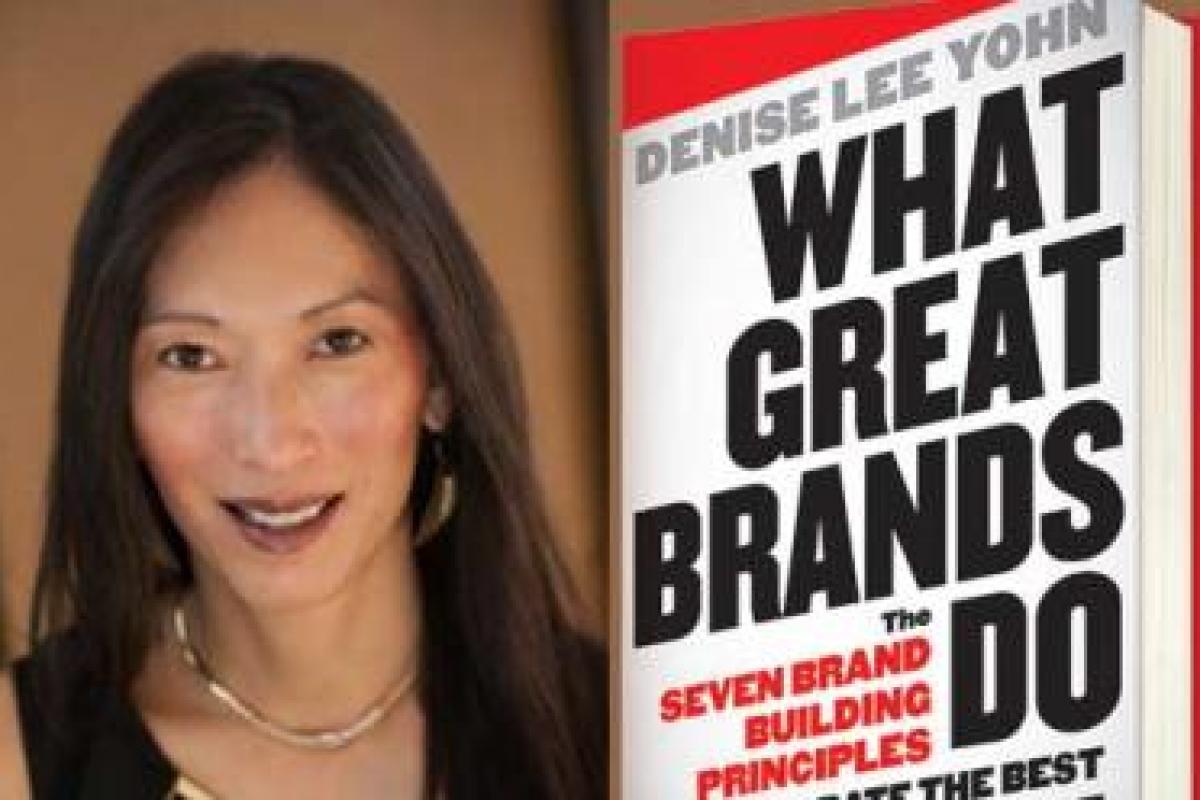Denise Lee Yohn’s 'What great brands do' is a first rate book about best practice in brand management, and I will probably be recommending it to a number of people on that basis.
Her seven brand building principles: Great brands start inside, great brands avoid selling products, great brands ignore trends, great brands don’t chase customers, great brands sweat the small stuff, great brands commit and stay committed, great brands never have to ‘give back’, all make sense.
She uses a number of classic cases and a range of some of the leading texts to bring them to life. She then provides a number of tools and processes that we brand marketers can use to our advantage.
I do however have a couple of reservations.
Firstly, in many cases it seemed to me that she was asserting that her way was the ‘right’ way. She may demonstrate each principle with two or three examples but I found myself immediately thinking of examples of great brands which didn’t conform, and indeed broke her principles.
Secondly, I was disappointed that there was nothing really new in the book. It is, as I’ve said, a very good summary of what many brand advocates would say is current best practice but, when it came to what she was suggesting, and indeed in some cases was presenting, as innovative many were well established best practice and have been for years.
Need states is a valuable tool but nothing new. It was her eighth principle that really got me thinking; her espousal of brand as business. The concept that ‘great brands’ are the key driving and defining force of the business is one, I will admit, I too have championed on many occasions.
However, it was when reading a quote from one of the texts she uses as key support for the principle that I started thinking; 'are we marketers and brand advocates getting above ourselves?'
The passage reads ‘In Collins’ view a core ideology is 'the glue that holds an organization together as it grows, decentralizes, diversifies, expands globally, and develops workplace diversity.' Ideally, you, your partners, and your employees should share a core ideology, or as I call it, a brand essence, and then use these ideals as filters for decision making about emerging opportunities.'
Yohn, as I have often done, with a quick slip of the keys (highlighted by my italics) transfers the notion and benefits of core ideology to branding, thus claiming the preeminence of branding in driving the business.
What is interesting in the Collins’ (& Porras’) quote is that it is from 'building your company’s vision' (my italics). The paper Yohn quotes from isn’t about brands, it's about companies. Indeed, their previous book which sets out much of this thinking, 'Built to last' from which Yohn quotes elsewhere, likewise talks about companies not brands.
So while I will admit that I’m equally guilty of this sleight of thinking, it made me wonder whether we brand advocates were trying to steal all the glory? It is worth remembering that, amongst others, Walt Disney (and later Roy Disney) hated the term ‘brand’, so did Steve Jobs and, so I have been told, does James Dyson.
I can also think of great companies (brands) that don’t conform to this or indeed any of Yohn’s principles. For me there are brands as business and some great business that using branding primarily as a means of identifying themselves and in their marketing.
Something for us brand advocates to consider.
Join our Book Club. If you're a member of The Marketing Society we'd love you to write a 300-word review for our Clubhouse. Or if you're an author get in touch. We've got lots of members keen to review your book. Contact Michael Piggott to find out more.
